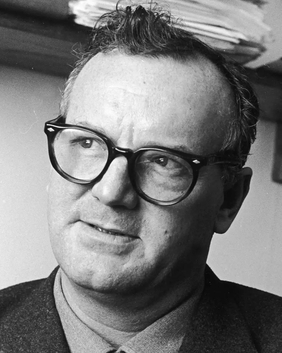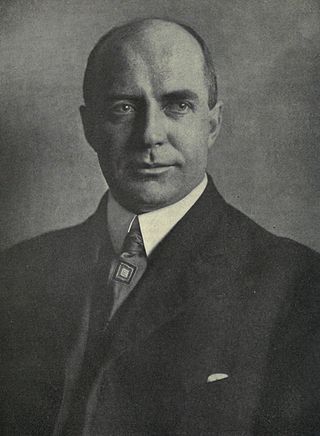Related Research Articles

Social science is one of the branches of science, devoted to the study of societies and the relationships among individuals within those societies. The term was formerly used to refer to the field of sociology, the original "science of society", established in the 19th century. In addition to sociology, it now encompasses a wide array of academic disciplines, including anthropology, archaeology, economics, human geography, linguistics, management science, communication science and political science.
Georg Simmel was a German sociologist, philosopher, and critic.

Ethnography is a branch of anthropology and the systematic study of individual cultures. Ethnography explores cultural phenomena from the point of view of the subject of the study. Ethnography is also a type of social research that involves examining the behavior of the participants in a given social situation and understanding the group members' own interpretation of such behavior.

Ferdinand Tönnies was a German sociologist, economist, and philosopher. He was a significant contributor to sociological theory and field studies, best known for distinguishing between two types of social groups, Gemeinschaft and Gesellschaft. He co-founded the German Society for Sociology together with Max Weber and Georg Simmel and many other founders. He was president of the society from 1909 to 1933, after which he was ousted for having criticized the Nazis. Tönnies was regarded as the first proper German sociologist and published over 900 works, contributing to many areas of sociology and philosophy. Tönnies, Max Weber, and Georg Simmel are considered the founding fathers of classical German sociology. Though there has been a resurgence of interest in Weber and Simmel, Tönnies has not drawn as much attention.

Qualitative research is a type of research that aims to gather and analyse non-numerical (descriptive) data in order to gain an understanding of individuals' social reality, including understanding their attitudes, beliefs, and motivation. This type of research typically involves in-depth interviews, focus groups, or observations in order to collect data that is rich in detail and context. Qualitative research is often used to explore complex phenomena or to gain insight into people's experiences and perspectives on a particular topic. It is particularly useful when researchers want to understand the meaning that people attach to their experiences or when they want to uncover the underlying reasons for people's behavior. Qualitative methods include ethnography, grounded theory, discourse analysis, and interpretative phenomenological analysis. Qualitative research methods have been used in sociology, anthropology, political science, psychology, communication studies, social work, folklore, educational research, information science and software engineering research.

Charles Wright Mills was an American sociologist, and a professor of sociology at Columbia University from 1946 until his death in 1962. Mills published widely in both popular and intellectual journals, and is remembered for several books, such as The Power Elite, White Collar: The American Middle Classes, and The Sociological Imagination. Mills was concerned with the responsibilities of intellectuals in post–World War II society, and he advocated public and political engagement over disinterested observation. One of Mills's biographers, Daniel Geary, writes that Mills's writings had a "particularly significant impact on New Left social movements of the 1960s era." It was Mills who popularized the term New Left in the US in a 1960 open letter, "Letter to the New Left".

The sociology of scientific knowledge (SSK) is the study of science as a social activity, especially dealing with "the social conditions and effects of science, and with the social structures and processes of scientific activity." The sociology of scientific ignorance (SSI) is complementary to the sociology of scientific knowledge. For comparison, the sociology of knowledge studies the impact of human knowledge and the prevailing ideas on societies and relations between knowledge and the social context within which it arises.

Florian Witold Znaniecki was a Polish and American philosopher and sociologist who taught and wrote in Poland and in the United States. Over the course of his work he shifted his focus from philosophy to sociology. He remains a major figure in the history of Polish and American sociology; the founder of Polish academic sociology, and of an entire school of thought in sociology. He won international renown as co-author, with William I. Thomas, of the study, The Polish Peasant in Europe and America (1918–1920), which is considered the foundation of modern empirical sociology. He also made major contributions to sociological theory, introducing terms such as humanistic coefficient and culturalism.
Verstehen, in the context of German philosophy and social sciences in general, has been used since the late 19th century – in English as in German – with the particular sense of the "interpretive or participatory" examination of social phenomena. The term is closely associated with the work of the German sociologist Max Weber, whose antipositivism established an alternative to prior sociological positivism and economic determinism, rooted in the analysis of social action. In anthropology, Verstehen has come to mean a systematic interpretive process in which an outside observer of a culture attempts to relate to it and understand others.

Sociology as a scholarly discipline emerged, primarily out of Enlightenment thought, as a positivist science of society shortly after the French Revolution. Its genesis owed to various key movements in the philosophy of science and the philosophy of knowledge, arising in reaction to such issues as modernity, capitalism, urbanization, rationalization, secularization, colonization and imperialism.

William Isaac Thomas was an American sociologist, understood today as a key figure behind the theory of symbolic interactionism.
The Kölner Zeitschrift für Soziologie und Sozialpsychologie is a German academic journal for sociology. It has an empirical focus on social research, both qualitatively and quantitatively, often in the tradition of Max Weber's "Verstehende Soziologie". Articles are usually published in German with an abstract in English.

A biography, or simply bio, is a detailed description of a person's life. It involves more than just basic facts like education, work, relationships, and death; it portrays a person's experience of these life events. Unlike a profile or curriculum vitae (résumé), a biography presents a subject's life story, highlighting various aspects of their life, including intimate details of experience, and may include an analysis of the subject's personality.
Nels Anderson was an early American sociologist who studied hobos, urban culture, and work culture.

Sociology is a social science that focuses on society, human social behavior, patterns of social relationships, social interaction, and aspects of culture associated with everyday life. More simply put, sociology is the scientific study of society. It uses various methods of empirical investigation and critical analysis to develop a body of knowledge about social order and social change. While some sociologists conduct research that may be applied directly to social policy and welfare, others focus primarily on refining the theoretical understanding of social processes and phenomenological method. Subject matter can range from micro-level analyses of society to macro-level analyses.
Daniel Bertaux is a French sociologist. He uses biographies in the study of sociology, and studies social mobility and life histories. He has been active in the International Sociological Association, European Sociological Association and French Sociological Association. He edited Biography and Society (1981), texts presented in the World Congress of Sociology in Uppsala 1978. After the fall of the Soviet Union he collected and analysed life stories in Russia.

Paul Thompson is a British sociologist and oral historian. Prior to his recent retirement, he held the position of Research Professor of Sociology at the University of Essex. Thompson is regarded as a pioneer in social science research, particularly due to the development of life stories and oral history within sociology and social history.

The Polish Peasant in Europe and America is a book by Florian Znaniecki and William I. Thomas, considered to be one of the classics of sociology. The book is a study of Polish immigrants to the United States and their families, based on personal documents, and was published in five volumes in the years 1918 to 1920.
Gabriele Rosenthal is a German sociologist and head of Department for Qualitative Methods of the Center for Methods in Social Sciences of the University of Göttingen, Germany. Rosenthal is recognized for the introduction of the method of biographical case reconstruction using biographical narrative interviews. She is known for systemizing the influences of the Gestalt theory, the sociology of knowledge, and the sociology of figurations and processes to explain the interrelationship between experience, memory and narrative, as well as how social figurations intertwine with individual biographies.
Biographical research is a qualitative research approach aligned to the social interpretive paradigm of research. The biographical research is concerned with the reconstruction of life histories and the constitution of meaning based on biographical narratives and documents. The material for analysis consists of interview protocols (memorandums), video recordings, photographs, and a diversity of sources. These documents are evaluated and interpreted according to specific rules and criteria. The starting point for this approach is the understanding of an individual biography in terms of its social constitution. The biographical approach was influenced by the symbolic interactionism, the phenomenological sociology of knowledge, and ethnomethodology. Therefore, biography is understood in terms of a social construct and the reconstruction of biographies can give insight on social processes and figurations, thus helping to bridge the gap between micro-, meso-, and macro- levels of analysis. The biographical approach is particularly important in German sociology. This approach is used in the Social Sciences as well as in Pedagogy and other disciplines. The Research Committee 38 "Biography and Society" of the International Sociological Association (ISA) was created in 1984 and is dedicated "to help develop a better understanding of the relations between individual lives, the social structures and historical processes within which they take shape and which they contribute to shape, and the individual accounts of biographical experience ".
References
Footnotes
- ↑ Goodson 2001.
- ↑ Bulmer 1984, p. 54.
- ↑ Köttig & Völter 2015.
- ↑ Rosenthal 2018.
- ↑ Rosenthal 1993.
- ↑ Boateng 2011, p. 4.
Bibliography
- Boateng, Boatema (2011). The Copyright Thing Doesn't Work Here: Adinkra and Kente Cloth and Intellectual Property in Ghana. Minneapolis, Minnesota: University of Minnesota Press. ISBN 978-0-8166-7002-4. JSTOR 10.5749/j.ctttss7k.
- Bulmer, Martin (1984). The Chicago School of Sociology: Institutionalization, Diversity, and the Rise of Sociological Research. Chicago: University of Chicago Press (published 1986). ISBN 978-0-226-08005-5.
- Goodson, Ivor (2001). "The Story of Life History: Origins of the Life History Method in Sociology". Identity. 1 (2): 129–142. doi:10.1207/S1532706XID0102_02. ISSN 1532-706X. S2CID 143595803.
- Köttig, Michaela; Völter, Bettina (December 2015). ""Das ist Soziologe sein!" – Ein narratives Interview mit Fritz Schütze zur Geschichte seines Werkes in der Soziologie" (PDF). Rundbrief 69/ Dezember 2015 der Sektion Biographieforschung in der Deutschen Gesellschaft für Soziologie: 35–53.
- Rosenthal, Gabriele (1993). "Reconstruction of Life Stories: Principles of Selection in Generating Stories for Narrative Biographical Interviews" (PDF). In Josselson, Ruthellen; Lieblich, Amia (eds.). The Narrative Study of Lives. Vol. 1. pp. 59–91. urn: nbn:de:0168-ssoar-59294.
- ——— (2018). Interpretive Social Research: An Introduction. Göttingen: Universitätsverlag Göttingen. doi: 10.17875/gup2018-1103 . ISBN 978-3-86395-374-4.